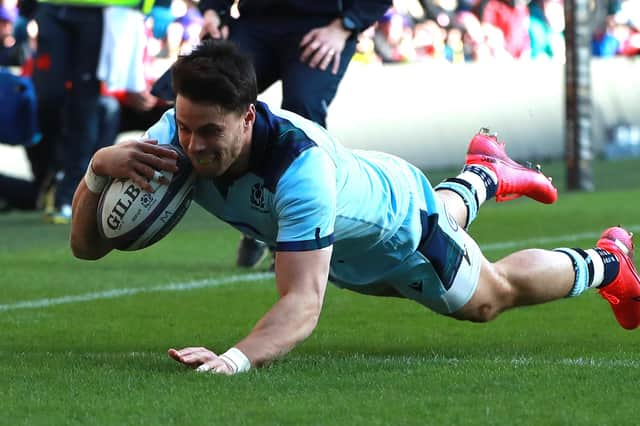Six Nations recap: Who is best placed to win after long lay-off?


And with four games remaining it promises to be a thrilling title race across the next two weekends with England, France and Ireland all holding major title hopes, while Scotland could yet prosper if others fall.
We have a look at how things might pan out with Ireland hosting Italy on Saturday, followed by Wales entertaining Scotland, England visiting Italy and Ireland travelling to France the following weekend.
Scotland
Advertisement
Hide AdAdvertisement
Hide AdScotland, who along with Italy have never won the Six Nations, are currently third, three points behind England and France with one game left – against Wales in Llanelli on October 31. Scotland have not won on Welsh soil for 18 years, but a five-point return is essential in terms of their distant title prospects. Even if that happens, they still need England and France to lose their final fixtures – and an Ireland defeat at home to Italy. With stand-off magician Finn Russell back in the squad, though, they are unlikely to go quietly.
Ireland
The maths are relatively simple in fourth-placed Ireland’s case. Currently on nine points, they will be crowned champions if they claim a maximum five points – winning and scoring four tries or more – in defeating Italy and then France. Ireland should encounter few problems in achieving the first part of that mission, but only three wins from 10 trips to Paris in the Six Nations suggests the second half will prove more difficult.
England
Eddie Jones’ men are well placed despite starting their Six Nations campaign in February by losing to France in Paris. They lead the table on points difference from Les Bleus – with 13 points – and their final game on Saturday week is away against Italy, where a five-point maximum should be secured. That would enhance England’s points difference – the first tie-breaker if teams finish level – and pile pressure on France in the competition’s final game at home to Ireland when they would potentially require a substantial victory.
France
Consistent under-achievers France have been transformed under new head coach Fabien Galthie, beating England and then Wales in Cardiff as they claimed three wins from their first four starts. Losing to Scotland last time out, though, was a hugely-damaging result, and they must now beat Ireland in Paris – preferably with five points – while also hoping that England lose, draw or win without a bonus in Rome.
Wales
Wales, Grand Slam champions last year in head coach Warren Gatland’s final season at the helm, look resigned to a disappointing fifth-placed finish. Gatland’s successor Wayne Pivac enjoyed a comfortable start when Italy were crushed 42-0, but successive defeats against Ireland, France and England left them trailing in the title race.
Italy
Italy are once again resigned to a dismal Six Nations campaign. They have lost all three of their games so far, and can expect little return from appointments with Ireland and England. It will all probably add up to them finishing bottom of the Six Nations pile for a 15th time – and a record fifth time in succession – since the tournament began 20 years ago.
A message from the Editor:
Thank you for reading this article. We're more reliant on your support than ever as the shift in consumer habits brought about by Coronavirus impacts our advertisers.
If you haven't already, please consider supporting our trusted, fact-checked journalism by taking out a digital subscription.
Comments
Want to join the conversation? Please or to comment on this article.